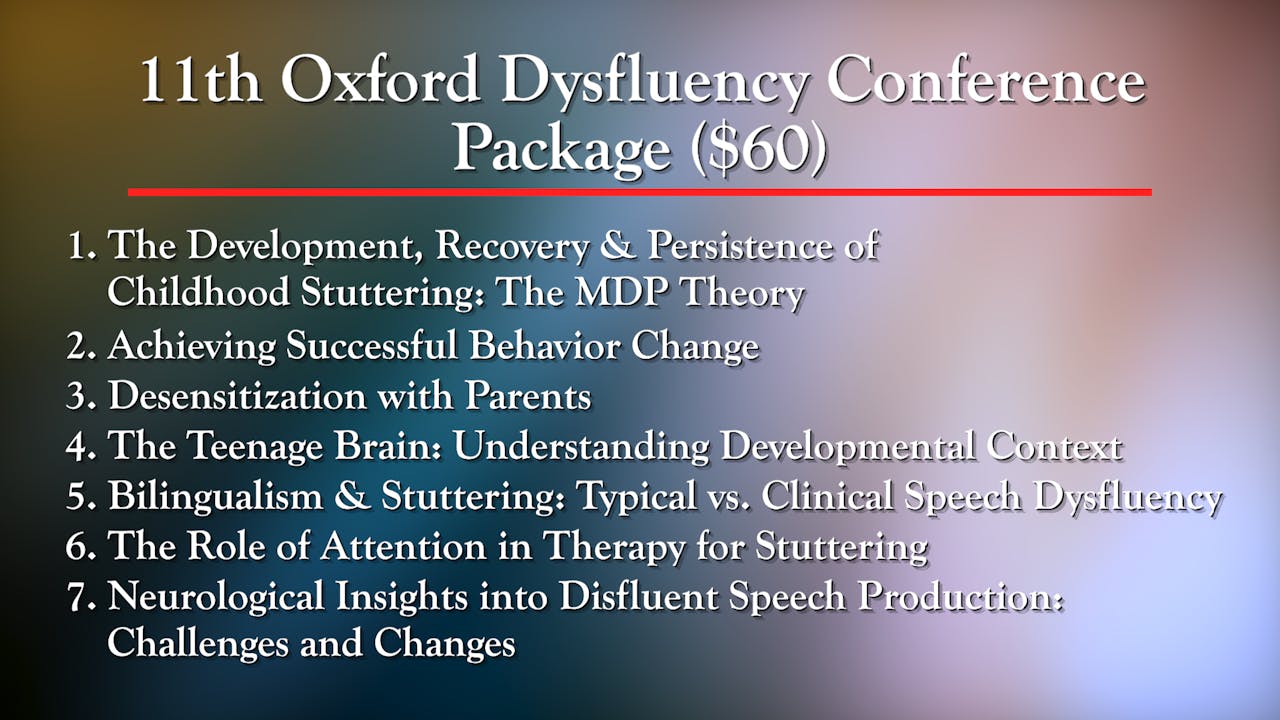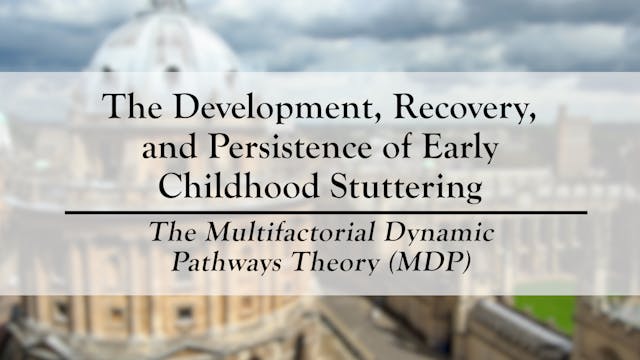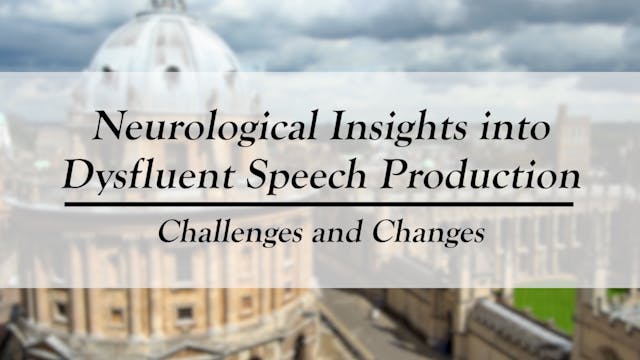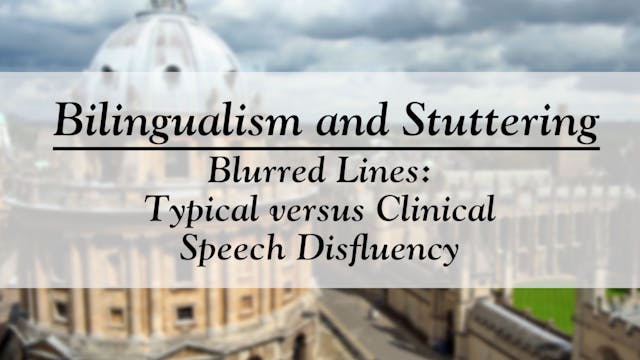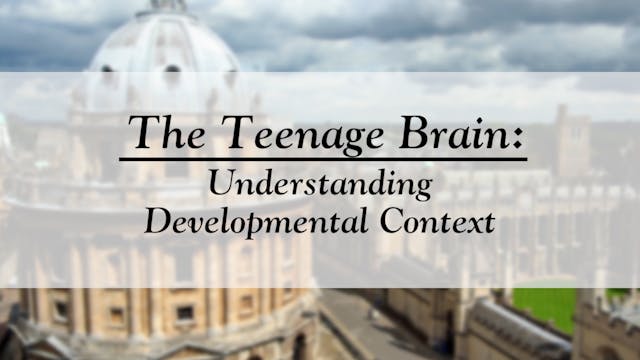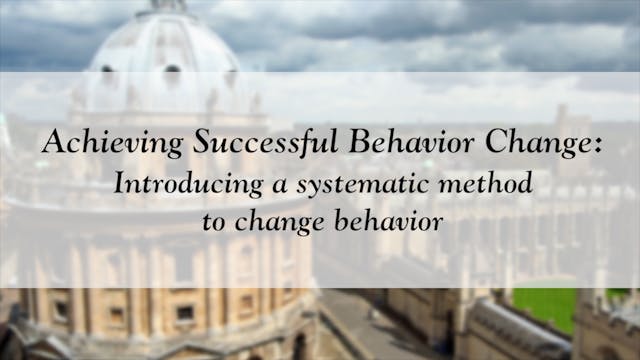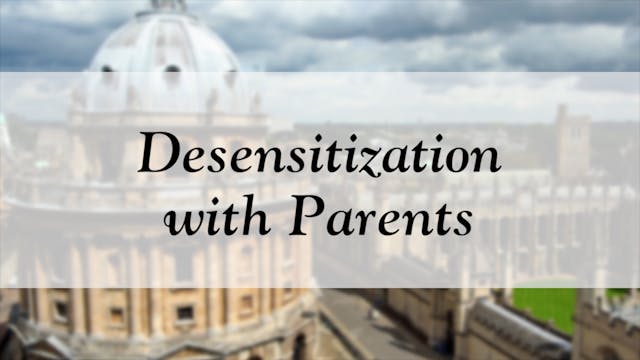11th Oxford Dysfluency Conference Package ($60)
This package includes all seven presentations from the 11th Oxford Dysfluency Conference for the price of six.
Titles Included:
1. The Development, Recovery & Persistence of Childhood Stuttering: The MDP Theory
2. Achieving Successful Behavior Change
3. Desensitization with Parents
4. The Teenage Brain: Understanding Developmental Context
5. Bilingualism & Stuttering: Typical vs. Clinical Speech Dysfluency
6. The Role of Attention in Therapy for Stuttering
7. Neurological Insights into Disfluent Speech Production: Challenges and Changes
-
Development, Recovery & Persistence of Childhood Stuttering: The MDP Theory
Dr. Christine Weber writes, “Stuttering, or Childhood Onset Fluency Disorder (DSM-5), is a neurodevelopmental disorder that begins when neural networks supporting speech, language, and emotional functions are displaying rapid development. How does stuttering develop, and what factors influence th...
-
Neurological Insights into Dysfluent Speech Production: Challenges and Changes
Dr. Martin Sommer writes, "Fluent speech is a fundamental prerequisite for social interaction in humans and a challenging task for the brain. Not all children acquire fluent speech; therefore stuttering persists after puberty in about 1 percent of adults. In recent years a broad range of technic...
-
The Role of Attention in Therapy for Stuttering
Presenter, Jane Harley writes, "My interest in the process of attention in stuttering therapy stems initially from a background in CBT and the information-processing theory and models which underpin CBT. These theoretical models propose that biases in what individuals attend to contribute to the ...
-
Bilingualism and Stuttering: Typical versus Clinical Speech Disfluency
Dr. Courtney Byrd writes," Speech disfluencies provide valuable insight into the linguistic and motoric effort required for spoken communication. Expressions such as “second language fluency” and “word fluency” tasks reflect this concept. The types and frequencies of speech disfluencies children ...
-
The Teenage Brain: Understanding Developmental Context
Dr. Catherine Sebastian writes, "Adolescence is a key developmental window characterised by profound changes in cognitive, social and emotion skills. While the majority of young people negotiate the pressures of adolescence well, this stage of life is nonetheless characterised by an increase in r...
-
Achieving Successful Behavior Change
Dr. Carmen Lefevre writes," Gaining a clear understanding of a behaviour as well as its drivers and barriers is pivotal for successfully changing it. In the context of dysfluency, there are likely many different factors that influence the target behaviour (e.g. ‘speaking fluently’) and that need ...
-
Desensitization with Parents
